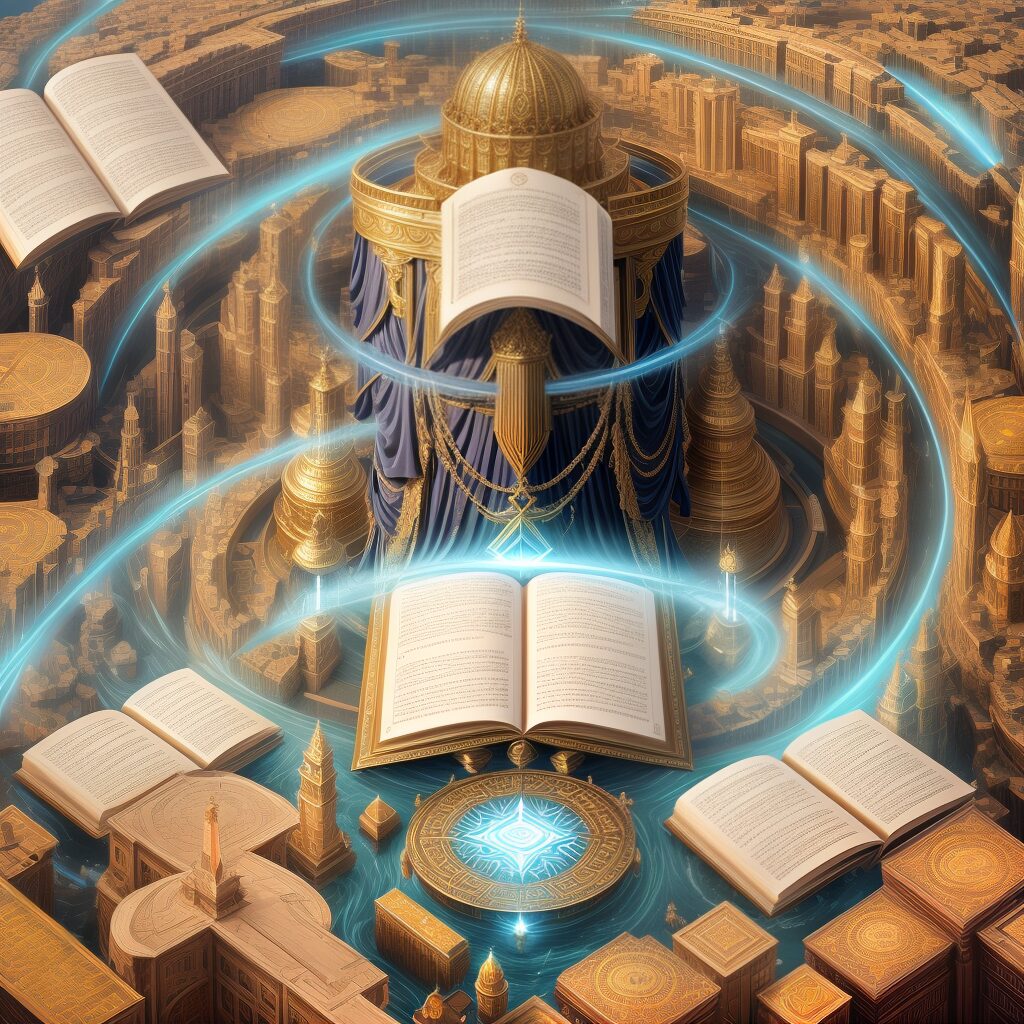
Greetings, saints of the Most High! Welcome to another installment of the Messianic Torah Observer. Today, we delve into the fascinating topic of the Noahide Laws, exploring their origins, development, and implications for both Jews and Gentiles.
Introduction to Noahide Laws
The concept of Noahide Laws originates from Rabbinic Judaism and its literature, particularly the Talmud. These laws were developed by the Talmudists between the 4th and 6th centuries CE, although hints of these precepts existed even earlier.
The Misinformation
Modern Orthodox Judaism teaches that non-Jews who keep the seven Noahide Laws will be granted a place in the world to come. However, this principle is not found in scripture but was developed during the Mishnaic and Talmudic eras. The Mishnah and the Talmud, which house Jewish oral law and commentary, played a significant role in shaping these laws.
The Jerusalem Council’s Edict
The Jerusalem Council’s edict to Gentile believers was not based on the Noahide Laws but on established Jewish halachah for resident aliens living among Jews. Resident aliens were Gentiles who lived and worked among Jews and adhered to community standards without converting to Judaism.
God Fearers
The term “God Fearers” refers to Gentiles who feared Yehovah and walked according to Torah, not necessarily those who kept the Noahide Laws. The earliest reference to the Noahide Laws is found in Tosefta Avoda Zara 8.4, part of the Mishnah, which outlines seven requirements for the children of Noah.
Expansion and Rabbinic Debates
Over time, the Noahide Laws expanded to include additional prohibitions, reflecting the complexities of life and the need for more comprehensive guidelines. Rabbinic debates on the Noahide Laws continued for centuries, focusing on their application and the distinction between Jews and Gentiles.
The Book of Jubilees
The Book of Jubilees suggests that Noah and his descendants were given the whole of Torah, challenging the idea that the Noahide Laws were separate from Torah. This perspective argues that the laws passed down to Noah were, in fact, the whole of Torah, reserved for the children of the covenant.
Conclusion
The Noahide Laws have a complex and debated history within Rabbinic Judaism. They were developed to create a distinction between Jews and Gentiles and to provide guidelines for Gentiles living among Jewish communities. Understanding these laws helps us appreciate the historical and theological context in which they were developed.
Offering Unblemished Animal Sacrifices – Idolatry and Paganism Warrants Capital Punishment – God’s Choice of King to Reign Over Us-Thoughts & Reflections on Torah Reading 139
This is the 139th Reading of our 3-year Torah Reading cycle that is found in Deuteronomy/Devarim 17:1-20. It is a continuation of Reading 138 (the previous week's reading). I've entitled this teaching: "Offering Unblemished Animal Sacrifices-Idolatry and Paganism...
The Immersion of the Two Pentecosts/Shavuots–Part 3 of our True Biblical Baptism Series
As I am recording and posting this installment of TMTO, it is Preparation Day, June 14, 2024. It is the 48th day of the counting of the omer, which means that Shavuot/Pentecost/Feast of Weeks is just two-days away, on Sunday, June 16, 2024. And yes, some members of...
Shavuot-Pentecost-Feast of Weeks — Timing is Everything
Shalom and greetings from the DFW. Trusting, hoping, and praying that this post finds you, your families, and your fellowships are well and blessed. This very short post is entitled: Shavuot-Pentecost-Feast of Weeks-Timing is Everything. As I write and record this...
Mikveh or Baptism? Which Is It? Part 2 of the True Biblical Baptism Series
This week’s teaching will take us back a year and a half ago when I started a teaching on True Biblical Baptism. That teaching was a subset, if you will, of our multi-installment Paul and Hebrew Roots teaching series I began many years ago. Unfortunately, as it...
Seven Reasons Messianics Must Stand on the Side of Israel-Part 5 of Israel’s Inextricable Link to our Salvation Series
I’ve titled this discussion: Seven Reasons This Messianic Stands with Israel. Because this discussion complements the last series, we published (i.e. Israel’s Inextricable Link to our Salvation), which is not yet finished, I included it in said series. So, this post...
Learning to Forget God — Thoughts and Reflections on Torah Reading 132
This week's discussion will be on the contents of the 132nd parashah of our 3-year Torah Reading cycle. The contents of our discussion today is found in Deuteronomy/Devarim 8.1-20. It is part of the broader annual reading cycle's "Ekev" (aka Because) that most...
Yeshua’s Passover — The Means to Our Salvation, Redemption, and Covenant Relationship with God
As I am recording and posting this installment of TMTO, many observant Jews and Messianics will celebrate Pesach tomorrow evening, April 22. We who keep the observational calendar will observe Pesach on Tuesday, April 23, as well as observing the night of our Master’s...
Choosing Yeshua as our Pesach: Shadows of Pesach 2024
I’ve chosen to title our discussion here today “Choosing Yeshua as our Pesach: Shadows of Pesach 2024.” If I could have you turn to Exodus 12.1-6, we will read the portion of Torah is directly tied to this special day on Yah’s set-apart calendar: And...
Aviv’s Prophetic Shadows of our Redemption and Salvation Through Yeshua Messiah
The Torah ... a shadow of the good matters -- good things -- to come...(The Scriptures, 3rd edition. , Heb 10:1).As I am recording and posting this installment of TMTO, we are heading into this week's Sabbath on this beautiful Preparation Day in the DFW. And yes, we...
Welcome to Aviv 2024-A Brief Overview of the Month and a Discussion of What God Expects From Us This Month
And Yahweh said to Moses and to Aaron in the land of Egypt, saying, 2 “This month will be the beginning of months; it will be for you the first of the months of the year... “Observe the month of Abib, and you shall keep the Passover to Yahweh your God, for in the...
